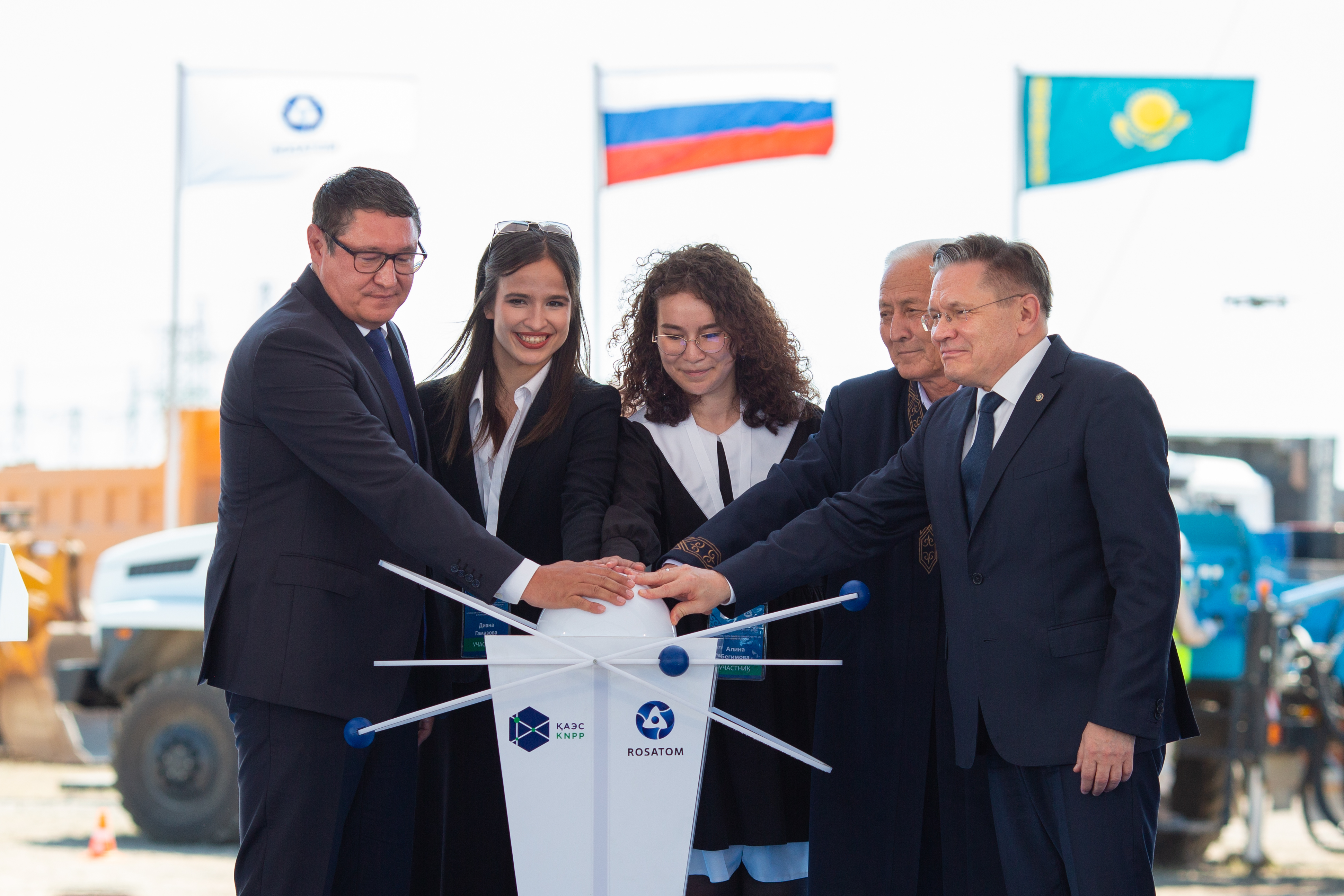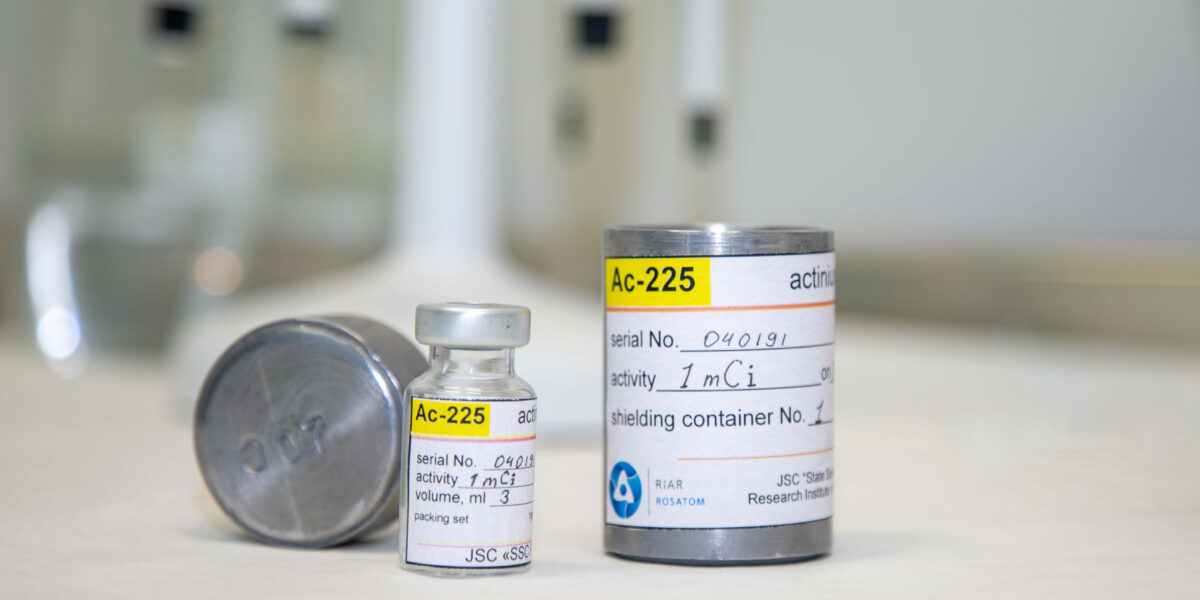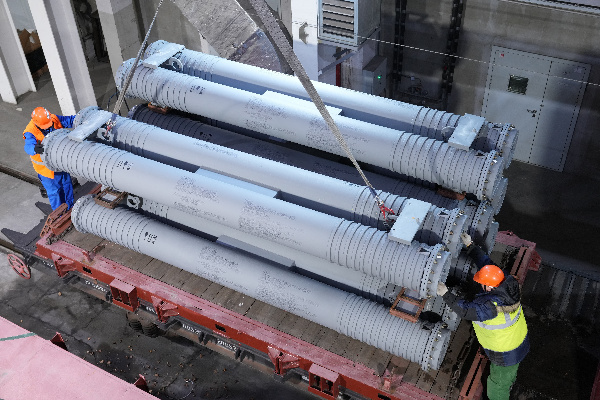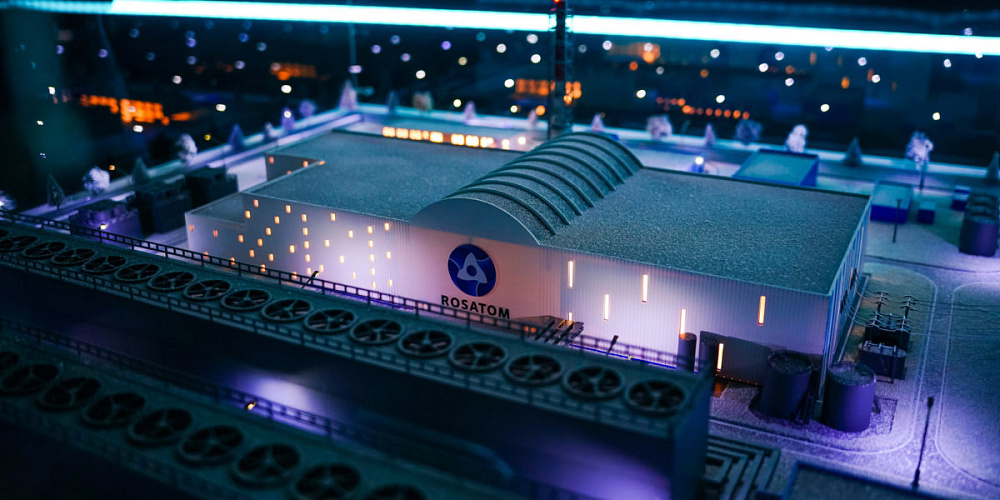On August 8, 2025, in the village of Ulken (Zhambyl
District, Almaty Region, Kazakhstan), the initial work began on the nuclear
power plant (NPP) construction project – engineering surveys to determine the
optimal site and prepare design documentation for the future high-capacity NPP.
The event was attended by Director General of the Russian
State Corporation Rosatom Alexey Likhachev, Chairman of the Agency of the
Republic of Kazakhstan for Atomic Energy Almasadam Satkaliyev, and Akim of
Almaty Region Marat Sultangaziyev.
Specialists from Rosatom’s Engineering Division started drilling the first exploratory borehole and soil sampling. These studies will assess seismic stability, hydrogeological features, and other parameters of the area, which are essential for the safety and reliability of the future plant. A total of at least 50 boreholes, each between 30 and 120 metres deep, will be drilled during this stage. A final decision on the nuclear power plant’s exact location will be made based on the survey results.
The start of engineering surveys is a fundamental stage that determines the safety, reliability, and economic efficiency of the NPP project. During this stage, a comprehensive study of the geological, seismic, hydrological, and environmental characteristics of the site is carried out. The final decision on the plant’s location will be based on this data. The surveys ensure the project complies with both international and national standards, minimizes environmental and technological risks, and creates a foundation for efficient design of the future nuclear power plant.
“The launch of engineering surveys in Ulken marks the beginning of the journey toward the first high-capacity nuclear power plant in Kazakhstan’s modern history. At this stage, we are focusing on a thorough study of the site to be fully confident in its suitability for a future nuclear plant. Rosatom is ready to apply all its accumulated experience to implement this strategically important project for Kazakhstan’s development,” said Alexey Likhachev, Director General of Rosatom.
Addressing local residents and ceremony guests, Almasadam Satkaliyev also emphasized: “Today is only the first step, but it determines Kazakhstan’s path toward establishing a new high-tech sector in the national economy. We are confident that the nuclear power plant will provide a powerful boost to the region’s development – from the creation of modern infrastructure to new schools, kindergartens, and social facilities. This project is Kazakhstan’s strategic choice and a driver of long-term regional and national economic growth.”
The future plant will be based on modern VVER-1200
reactors (pressurized water reactors with 1200 MW electric capacity) of
Generation III+. This technology meets the strictest international safety
standards and is already successfully used in operating and under-construction
facilities in Russia, Belarus, Turkey, Bangladesh, Egypt, and China. The
reactor’s service life is 60 years, with a potential extension of another 20
years.
During the ceremony, employees of Leningrad NPP, Akkuyu NPP (Turkey), Belarus NPP, Paks-2 NPP (Hungary), and Rooppur NPP (Bangladesh), wh ere VVER-1200 units are already operating or being built, addressed the residents of Ulken. They wished the project success and highlighted the importance of nuclear energy for the region’s socio-economic development.
At the St. Petersburg International Economic Forum in
June 2025, an Indicative Roadmap for the NPP construction project was approved
between Rosatom and the Agency of the Republic of Kazakhstan for Atomic Energy.
The document outlines key cooperation stages: conducting engineering surveys,
preparing design documentation, and signing an EPC (Engineering, Procurement,
and Construction) contract. As part of bilateral cooperation, a framework
agreement was also signed between LLP “Kazakh Nuclear Power Plants” and JSC
Atomstroyexport (Rosatom’s Engineering Division). This agreement outlines key partnership principles for implementing the
project in the Zhambyl District of the Almaty Region.
The NPP construction project is being implemented under agreements between Kazakhstan and Russia on cooperation in the peaceful use of nuclear energy. The project’s key goals are to ensure Kazakhstan’s long-term energy security, develop national nuclear infrastructure, and support efforts to reduce the country’s carbon footprint. Historically, Kazakhstan’s experience with nuclear energy is tied to the BN-350 reactor in Aktau (Mangystau Region), which operated from 1972 to 1999. In addition to generating electricity, the facility housed one of the world’s largest seawater desalination complexes. Currently, the BN-350 is being decommissioned.
In June 2025, Rosatom was designated as the lead of an international consortium for the construction of Kazakhstan’s NPP.





